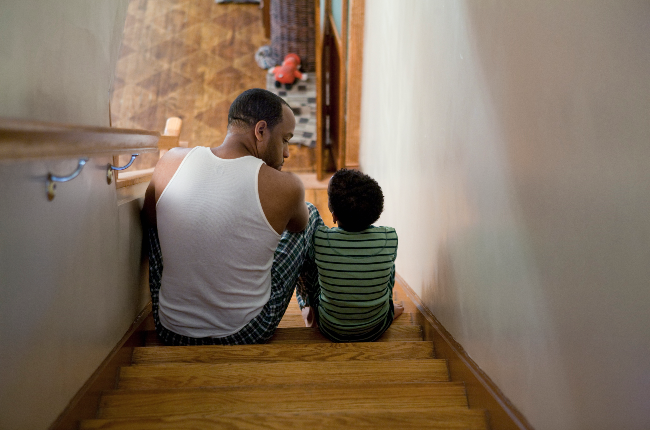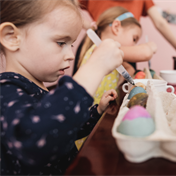
Your cat has just died and now your children have a million and one questions. Will he go to kitty heaven? What will happen to his body, which is now buried under a lavender bush in the back garden?
You have no idea what answers to give. All you know is that you don’t want to say anything that could trigger another bout of crying.
Parents often think they’re doing the right thing by withholding potentially upsetting information from their kids. Yet experts say it’s by giving children facts and keeping an open dialogue that you’ll help them to grasp the concept of death and to deal with their grief.
“Death, or impending death, can shatter a child’s illusions about the world – that only old or bad people die, and that parents or parent figures such as teachers or clergy are all powerful and can prevent all catastrophes,” says Dianne McKissock, author of The Grief Of Our Children.
“For children to retain trust in the adults in their world they need to believe they’ll be given truthful answers – that in their family no questions are taboo, and that they’ll be helped to access truth.”
Here, we find out how to talk to children about this sensitive topic.
Give them information
A century ago, children had more experience of death because births and deaths happened more often at home. Now, because people are more likely to be in hospital when they die, the circle of life is more mysterious.
“If children don’t have enough information they’ll make things up in an attempt to understand,” says Philly Smith, clinical nurse specialist at Bear Cottage children’s hospice in Sydney, Australia. “The risk here is you don’t know what they’re making of it all.”
Be willing to give information when they ask for it.
Use the ‘D’ word
Children understand clear facts. “We need to say ‘death’. If we avoid saying ‘died’ or ‘dead’ we convey the message that death is so fearful we can’t even utter the word, which ends up making children scared of death,” McKissock says.
“Euphemisms like ‘gone to sleep’ or hearing that someone has ‘lost’ a loved one can be confusing, especially for young children who take things literally and may fear being ‘lost’ by their parents, or worry about going to sleep in case they don’t wake up.”
“You might think it’s comforting to say their sister is in heaven watching over them but it can be scary for children to hear that,” Smith says.
Initially it can be more comforting to tell a child their loved one can’t feel pain any more than it is to say they’ve gone to heaven.
Start young
Ideally conversations about death should start early in a child’s life. “Talk to them when they’re very young about dead and living things; get them to touch a live and dead leaf and hold a dead insect,” McKissock says. “When a pet dies, use this as an opportunity to show them healthy ways to respond to death.
“Provide loving support for your child. Let them be involved in preparing their pet for burial, creating a monument and organising a ceremony. They learn through this that the death of a loved one is sad yet survivable.”
Answer their questions as factually as you can, guided by their age. Children aged two to four can’t understand the finality of death and experience it as abandonment. From four to seven they might still see death as reversible and ask repeated “how” and “why” questions. Between seven and 11 they’re capable of understanding the finality of death, and from 11 onwards they can understand it in a more adult manner.
Let your feelings show
Children need to know it’s normal and acceptable to show sadness and talk about the person who died. Allowing your child to see you sad is healthy. “Sadness is an important emotion, an expression of caring, not a destructive force to be feared,” McKissock says.
She suggests saying something such as, “We keep the people we love alive in our hearts and minds by remembering them, by talking about them and sharing stories of the things we liked to do with them.
When we miss them we feel sad and we might cry, or want to be alone for a while. That’s a natural and healthy thing to do, but if you’re worried about how you feel, tell me and we can work out ways for you to manage your feelings.”
Encourage open communication
Your child’s questions and response to death might be challenging but their curiosity is normal and healthy.
Aim to create a family culture where they can ask you anything. “Resist the temptation to rush in with an answer,” McKissock says. “First ask your child, ‘What do you think?’ Listen carefully to their response, ask questions to help you understand their level of comprehension, then give missing information simply. They don’t need and can’t comprehend complicated answers.”
If you don’t know the answer to “what happens when we die?” it’s okay to say so. “They can handle the truth,” McKissock says. “Evasiveness and dishonesty are the things that cause children distress.”




 Publications
Publications
 Partners
Partners
















